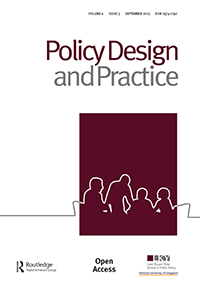On the realities of gender inclusion in climate change policies in Nepal
IF 2.6
Q1 PUBLIC ADMINISTRATION
引用次数: 2
Abstract
Abstract Climate change impacts are felt globally but not equally. Even within the most vulnerable groups, women are disproportionately affected by the impacts of a changing climate. This review delves into the issue of how climate change and related policy documents in Nepal have addressed the gender-differentiated impacts of climate change. Through a gendered lens, the policies are evaluated as to whether they are gender-blind or gender-aware. We have reviewed 24 documents with climate change as a thematic area of focus along with other climate change-related national policy documents on the environment, forestry and watershed, agriculture, and disaster. Out of the 24 documents reviewed, 19 were found to be gender-aware and 5 were found to be gender-blind. We recommend gender-transformative policy development as it has been made clear that unless prevalent structural inequalities are addressed, the vulnerable cannot adapt to climate change impacts.关于尼泊尔气候变化政策中性别包容的现实
全球都能感受到气候变化的影响,但并不平等。即使在最脆弱的群体中,妇女也不成比例地受到气候变化的影响。这篇综述深入探讨了尼泊尔的气候变化和相关政策文件如何解决气候变化对性别差异的影响。通过性别视角,评估这些政策是无视性别还是意识到性别。我们审查了24份以气候变化为专题领域的文件,以及其他与气候变化有关的环境、林业和流域、农业、灾害等国家政策文件。在审查的24份文件中,发现19份具有性别意识,5份没有性别意识。我们建议制定性别转型政策,因为已经明确的是,除非解决普遍存在的结构性不平等问题,否则弱势群体无法适应气候变化的影响。
本文章由计算机程序翻译,如有差异,请以英文原文为准。
求助全文
约1分钟内获得全文
求助全文
来源期刊

Policy Design and Practice
PUBLIC ADMINISTRATION-
CiteScore
10.30
自引率
4.30%
发文量
19
审稿时长
13 weeks
期刊介绍:
 求助内容:
求助内容: 应助结果提醒方式:
应助结果提醒方式:


